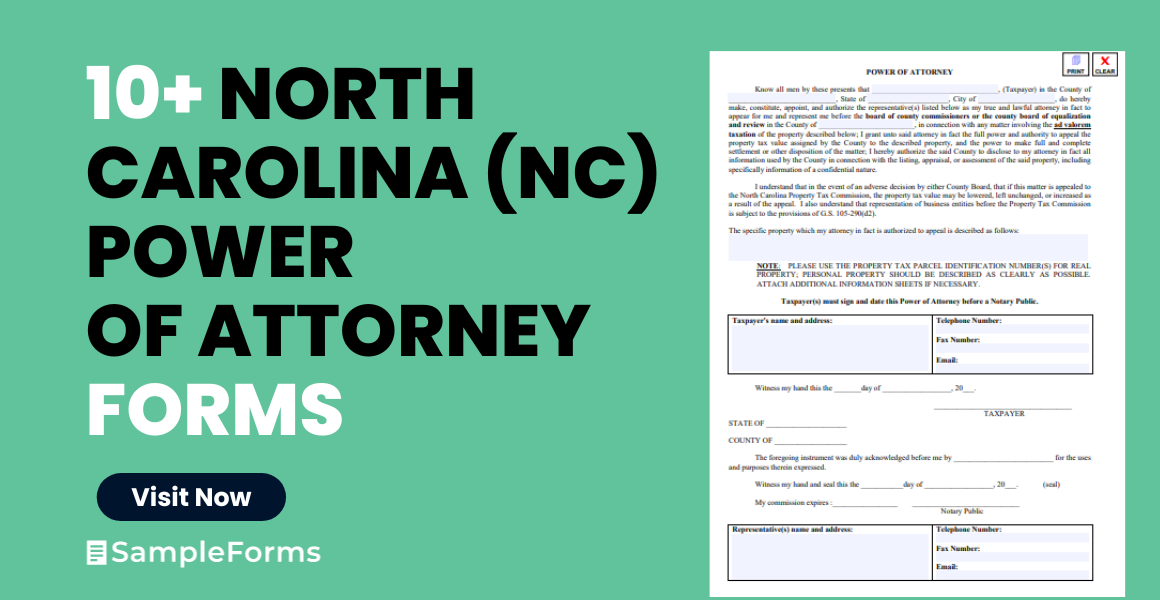Unlock the potential of the North Carolina Power of Attorney (POA) Form with our expert guide. Tailored for North Carolina residents, this resource simplifies the process of delegating legal authority, whether for financial, healthcare, or personal matters. Our guide provides essential tips and step-by-step instructions, ensuring your POA form is effective, compliant with NC laws, and tailored to your specific needs. Ideal for those seeking to manage their affairs or those of loved ones efficiently and securely.
What is the North Carolina Power of Attorney Form?
The North Carolina Power of Attorney Form is a legal document that allows an individual, known as the ‘principal’, to appoint someone else, called the agent or attorney-in-fact, to make decisions and act on their behalf. This form is commonly used in North Carolina for various purposes, such as managing financial affairs, making healthcare decisions, or handling other personal matters, especially when the principal is unable to do so themselves. It’s an essential tool for legal delegation of authority.
What is the Best Sample North Carolina Power of Attorney Form?
Creating a sample North Carolina Power of Attorney (POA) form involves including essential elements to make it comprehensive and adaptable. However, it’s important to note that for actual legal use, consulting with a legal professional is advisable to ensure the form meets all legal requirements and is tailored to specific circumstances. Below is a basic structure for a sample North Carolina POA form:
NORTH CAROLINA POWER OF ATTORNEY FORM
Principal’s Information:
- Name: [__________]
- Address: [__________]
- Phone Number: [__________]
Agent’s Information:
- Name: [__________]
- Address: [__________]
- Phone Number: [__________]
Powers Granted:
- Financial Decisions
- Real Estate Transactions
- Personal Property Management
- Healthcare Decisions
- Other: [Specify: __________]
Special Instructions:
[Provide any specific instructions or limitations on the agent’s power here.]
Effective Date:
- This Power of Attorney shall become effective on [Date: //____].
Duration:
- Durable (remains in effect even if I become incapacitated)
- Non-Durable (ends if I become incapacitated)
- Springing (becomes effective upon a specified event or condition)
Signature of Principal:
- Signature: [__________]
- Date: [//____]
Signature of Agent:
- Signature: [__________]
- Date: [//____]
Acknowledgment by Notary Public:
[Notary Public’s area for stamp and signature]
This sample form is designed to be fillable, allowing the principal to easily input their information and customize the powers granted to the agent. Remember, each situation is unique, and the form should be tailored to fit specific needs and legal requirements.
1. State of North Carolina Power of Attorney Form
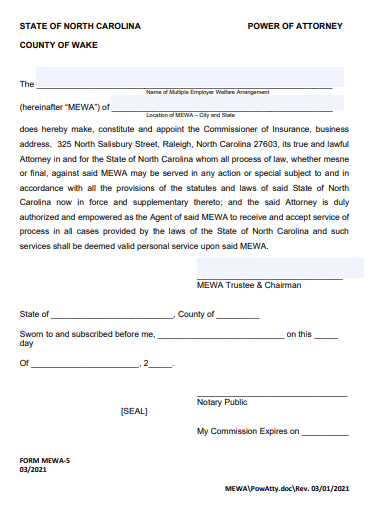
2. Standard North Carolina Power of Attorney Form
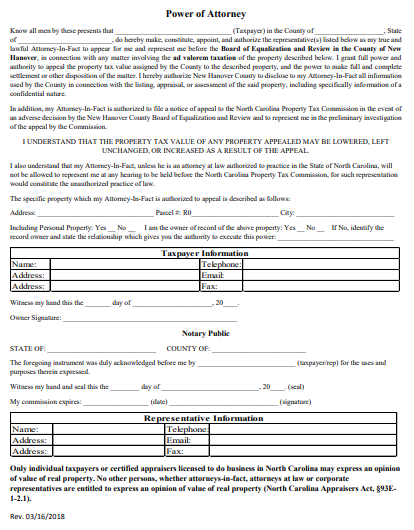
3. North Carolina Statutory Power of Attorney Form
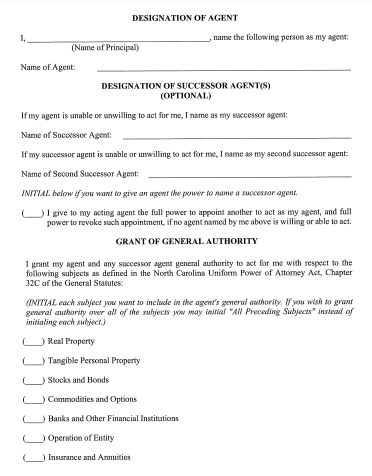
4. North Carolina Simple Power of Attorney Form
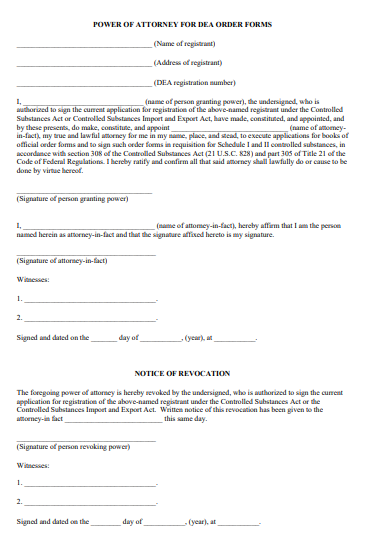
5. North Carolina Sample Power of Attorney Form
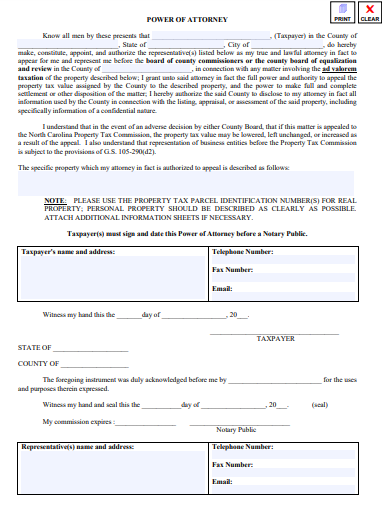
6. North Carolina Power of Attorney Form
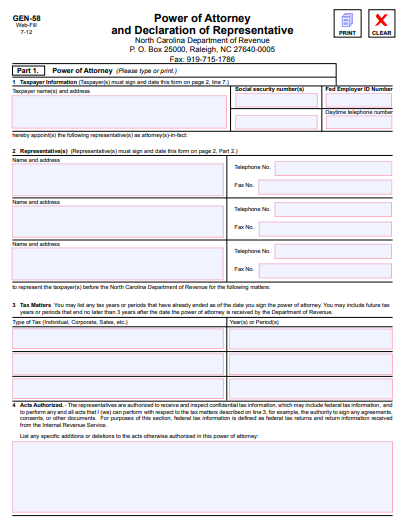
7. North Carolina Limited Power of Attorney Form
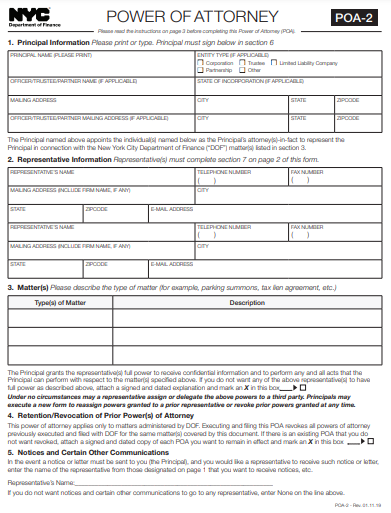
8. Free North Carolina Power of Attorney Form
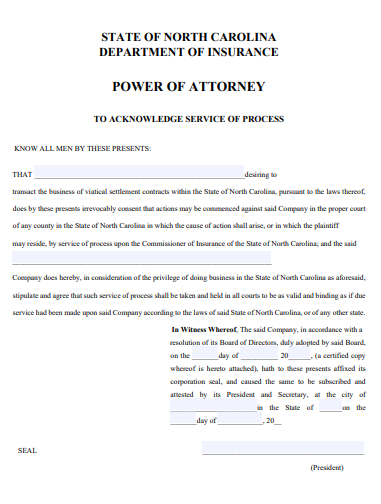
9. North Carolina Health CarePower of Attorney Form
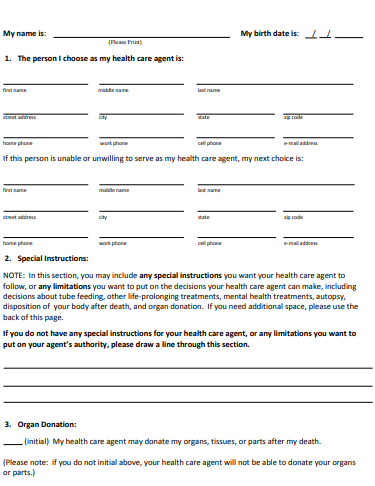
10. North Carolina General Power of Attorney Form
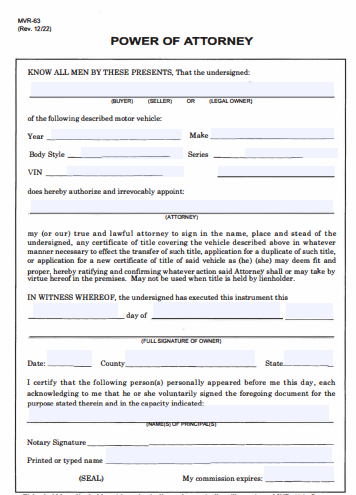
11. North Carolina Business Power of Attorney Form
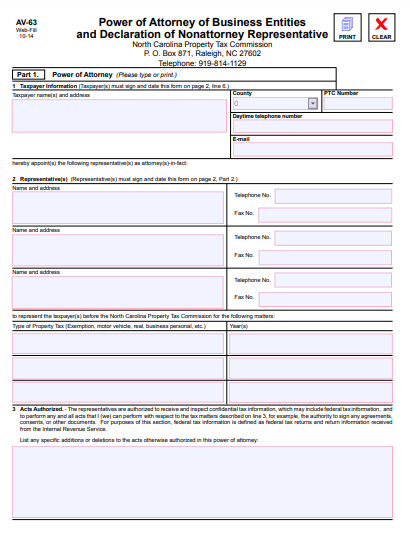
How do I Get a Power of Attorney in North Carolina?
To obtain a Power of Attorney in North Carolina, select a trusted agent, complete the POA form with specific powers, sign it, and get it notarized for legal validity.
Examples:
- Choosing an Agent: Select a reliable individual to act on your behalf.
- Completing the Form: Fill out the North Carolina POA form, detailing the powers granted.
- Notarization: Have the document notarized for legal recognition.
- Legal Consultation: Seek legal advice for complex situations.
- Distribution: Share copies with relevant parties, like banks or healthcare providers.
What is the North Carolina Statutory Short Form Power of Attorney?
The North Carolina Statutory Short Form Power of Attorney is a standardized form that simplifies granting authority for financial and legal decisions.
Examples:
- Standardized Format: Easy-to-use, pre-formatted document.
- Financial Decisions: Authorizes handling of financial matters.
- Legal Transactions: Enables legal decision-making on behalf of the principal.
- State Compliance: Meets North Carolina legal requirements.
- Efficiency: Streamlines the process of granting POA.
What is a Durable General Power of Attorney Form in NC?
A Durable General Power of Attorney in NC remains effective even if the principal becomes incapacitated, covering a broad range of powers.
Examples:
- Incapacity Planning: Remains valid during the principal’s incapacity.
- Broad Authority: Covers various financial and legal decisions.
- Long-Term Planning: Ideal for ongoing management of affairs.
- Flexibility: Can be customized to the principal’s needs.
- Legal Protection: Ensures continuous decision-making ability.
Does a Power of Attorney Need to be Registered in NC?
In North Carolina, registering a Power of Attorney is not mandatory, but it can be recorded for real estate transactions or as a protective measure.
Examples:
- Real Estate Transactions: Recording is beneficial for property matters.
- Legal Protection: Provides proof of the POA’s existence.
- Public Record: Ensures accessibility for relevant transactions.
- Optional Process: Based on the principal’s preference.
- County Recorder’s Office: The place for registration.
Do You Need a Lawyer for Power of Attorney in North Carolina?
While not mandatory, consulting a lawyer for a Power of Attorney in North Carolina is advisable to ensure legal compliance and tailor the document to specific needs.
Examples:
- Legal Expertise: Ensures the POA meets state laws.
- Customization: Tailors the POA to individual circumstances.
- Complex Situations: Advisable for complicated financial or healthcare decisions.
- Peace of Mind: Provides confidence in the document’s validity.
- Avoiding Errors: Minimizes the risk of legal challenges.
What is a Limited Power of Attorney in NC?
A Limited Power of Attorney in NC grants specific, narrow powers to an agent, typically for a particular task or limited time period.
Examples:
- Single Transaction: Authorizes the agent for a specific deal.
- Short-Term Use: Ideal for temporary authority.
- Specific Tasks: Tailored to particular actions or decisions.
- Event-Driven: Activates for a designated event.
- Controlled Authority: Limits the agent’s power scope.
Do You Need Witnesses for Power of Attorney NC?
Yes, North Carolina law requires a Power of Attorney to be signed in the presence of a notary public, but witnesses are not legally required.
Examples:
- Notary Public: Essential for validating the POA.
- Legal Formality: Ensures the document’s authenticity.
- No Witness Requirement: Unlike some other states.
- Legal Compliance: Aligns with North Carolina statutes.
- Document Integrity: Adds to the POA’s credibility.
How to Prepare a North Carolina Power of Attorney Form
Preparing a North Carolina Power of Attorney (POA) form is a crucial process that requires attention to detail and an understanding of legal requirements. This guide will walk you through each step to ensure your POA is effective and legally sound.
- Understand the Types of POA: Familiarize yourself with the various types of POA available in North Carolina, such as Durable, Non-Durable, Medical, or Financial. Choose the type that best suits your needs.
- Select a Reliable Agent: Choose someone you trust implicitly to act as your agent. This person will have significant authority over your affairs.
- Define the Powers: Clearly specify the powers you are granting to your agent. Be as detailed as possible to avoid any ambiguity.
- Draft the POA Form: Use a standard North Carolina POA form or draft one with the help of a legal professional. Ensure it includes all necessary sections and is clear in its wording.
- Include Special Instructions: If there are specific conditions or limitations you want to apply, clearly state them in the document.
- Sign and Notarize the Form: After reviewing the document for accuracy, sign it in the presence of a notary public. In North Carolina, notarization is essential for the POA to be legally valid.
- Distribute Copies: Provide copies of the signed document to your agent and any relevant institutions, like banks or healthcare providers.
- Regular Reviews and Updates: Circumstances change, so it’s important to review and update your POA as needed.
Tips for Using Effective North Carolina Power of Attorney Form
To ensure your North Carolina Power of Attorney form is used effectively, consider the following tips:
- Clear Communication with Your Agent: Discuss your expectations and the extent of their powers with your agent. Effective communication is key to a successful POA.
- Be Specific in Powers Granted: Avoid vague language. Clearly define the scope and limitations of the powers to prevent misuse.
- Consider a Durable POA: If you want the POA to remain effective even if you become incapacitated, opt for a Durable Power of Attorney.
- Keep Detailed Records: Maintain records of all actions taken under the POA, especially for financial transactions.
- Ensure Legal Compliance: Make sure your POA complies with North Carolina state laws, including specific wording and notarization requirements.
- Plan for Succession: Appoint a successor agent in case your primary choice is unable or unwilling to serve.
- Seek Legal Advice: Consult with a legal professional for complex situations to ensure your POA is valid and effective.
- Review Regularly: Laws and personal circumstances change. Regularly review and update your POA to ensure it remains effective.
By following these steps and tips, you can create and use a North Carolina Power of Attorney form that effectively communicates your wishes and ensures your affairs are managed according to your specifications.
Can You Have More Than One Power of Attorney in NC?
Yes, in North Carolina, you can have multiple Power of Attorney documents, each for different purposes, like one for healthcare and another for financial matters.
Can You Revoke a Power of Attorney in NC?
Yes, a Power of Attorney in North Carolina can be revoked at any time by the principal, provided they are mentally competent, through a written revocation notice.
Can There Be More Than 1 Agent in a Power of Attorney?
Yes, a Power of Attorney can appoint multiple agents, either to act jointly in decision-making or separately in different areas or times.
What are the Problems with Health Care Power of Attorney in NC?
Challenges with Health Care Power of Attorney in NC include potential conflicts among family members, ambiguity in decision-making authority, and misunderstanding of the principal’s wishes.
Who Makes Medical Decisions if There is No Power of Attorney in NC?
In North Carolina, if there’s no Power of Attorney, medical decisions are typically made by close family members or a court-appointed guardian.
How Long is a Power of Attorney Good for in North Carolina?
In North Carolina, a Power of Attorney remains valid until the principal’s death, revocation, or as specified in the document, unless it’s a Durable POA, which continues despite incapacity.
This guide provides a comprehensive overview of creating and using a North Carolina Power of Attorney Form. By following these steps and tips, you can ensure your POA is legally sound and tailored to your specific needs. Regular updates and clear communication with your agent are crucial for maintaining its effectiveness in managing your personal, financial, or healthcare affairs.
Related Posts
-
10+ Free Nevada (NV) Power of Attorney Form Download – How to Create Guide, Tips
-
10+ Free Nebraska (NE) Power of Attorney Form Download – How to Create Guide, Tips
-
10+ Free Montana (MT) Power of Attorney Form Download – How to Create Guide, Tips
-
10+ Free Missouri (MO) Power of Attorney Form Download – How to Create Guide, Tips
-
10+ Free Minnesota (MN) Power of Attorney Form Download – How to Create Guide, Tips
-
10+ Free Mississippi (MS) Power of Attorney Form Download – How to Create Guide, Tips
-
10+ Free Massachusetts (MA) Power of Attorney Form Download – How to Create Guide, Tips
-
10+ Free Maryland (MD) Power of Attorney Form Download – How to Create Guide, Tips
-
10+ Free Maine (ME) Power of Attorney Form Download – How to Create Guide, Tips
-
10+ Free Louisiana (LA) Power of Attorney Form Download – How to Create Guide, Tips
-
10+ Free Kentucky (KY) Power of Attorney Form Download – How to Create Guide, Tips
-
10+ Free Kansas (KS) Power of Attorney Form Download – How to Create Guide, Tips
-
10+ Free Iowa (IA) Power of Attorney Form Download – How to Create Guide, Tips
-
10+ Free Indiana (IN) Power of Attorney Form Download – How to Create Guide, Tips
-
10+ Free Illinois (IL) Power of Attorney Form Download – How to Create Guide, Tips
